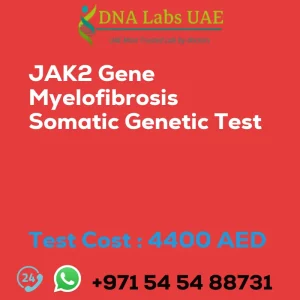CDKN2A Gene Melanoma Cutaneous Malignant Familial Genetic Test
Welcome to DNA Labs UAE, a leading genetic lab specializing in DNA testing and analysis. In this blog, we will discuss the CDKN2A Gene Melanoma Cutaneous Malignant Familial Genetic Test, its components, cost, symptoms, diagnosis, and more.
Test Name: CDKN2A Gene Melanoma Cutaneous Malignant Familial Genetic Test
Components: Blood or Extracted DNA or One drop Blood on FTA Card
Price: 4400.0 AED
Sample Condition: Blood or Extracted DNA or One drop Blood on FTA Card
Report Delivery: 3 to 4 Weeks
Method: NGS Technology
Test Type: Cancer
Doctor: Oncologist
Test Department: Genetics
Pre Test Information: Clinical History of Patient who is going for CDKN2A Gene Melanoma, cutaneous malignant, familial NGS Genetic DNA Test. A Genetic Counselling session to draw a pedigree chart of family members affected with CDKN2A Gene Melanoma, cutaneous malignant, familial NGS Genetic DNA Test gene CDKN2A
Test Details
The CDKN2A gene is a tumor suppressor gene that plays a crucial role in regulating cell division and preventing the development of cancer. Mutations in the CDKN2A gene have been associated with an increased risk of developing cutaneous malignant melanoma, which is a type of skin cancer.
NGS (Next-Generation Sequencing) genetic testing is a technique used to analyze multiple genes simultaneously for mutations or variations. In the context of melanoma, NGS genetic testing can identify mutations in the CDKN2A gene that may increase an individual’s susceptibility to developing familial (inherited) melanoma.
Familial melanoma refers to cases where there is a strong family history of melanoma, suggesting a hereditary component. NGS genetic testing can help identify individuals who may carry mutations in the CDKN2A gene, which can inform their risk assessment and guide appropriate screening and preventive measures.
It is important to note that genetic testing for melanoma is typically recommended for individuals with a strong family history of the disease or those who have been diagnosed with multiple primary melanomas. Genetic counseling is often recommended prior to and after genetic testing to help individuals understand the implications of the results and make informed decisions about their healthcare.
| Test Name | CDKN2A Gene Melanoma cutaneous malignant familial Genetic Test |
|---|---|
| Components | |
| Price | 4400.0 AED |
| Sample Condition | Blood or Extracted DNA or One drop Blood on FTA Card |
| Report Delivery | 3 to 4 Weeks |
| Method | NGS Technology |
| Test type | Cancer |
| Doctor | Oncologist |
| Test Department: | Genetics |
| Pre Test Information | Clinical History of Patient who is going for CDKN2A Gene Melanoma, cutaneous malignant, familial NGS Genetic DNA Test. A Genetic Counselling session to draw a pedigree chart of family members affected with CDKN2A Gene Melanoma, cutaneous malignant, familial NGS Genetic DNA Test gene CDKN2A |
| Test Details |
The CDKN2A gene is a tumor suppressor gene that plays a crucial role in regulating cell division and preventing the development of cancer. Mutations in the CDKN2A gene have been associated with an increased risk of developing cutaneous malignant melanoma, which is a type of skin cancer. NGS (Next-Generation Sequencing) genetic testing is a technique used to analyze multiple genes simultaneously for mutations or variations. In the context of melanoma, NGS genetic testing can identify mutations in the CDKN2A gene that may increase an individual’s susceptibility to developing familial (inherited) melanoma. Familial melanoma refers to cases where there is a strong family history of melanoma, suggesting a hereditary component. NGS genetic testing can help identify individuals who may carry mutations in the CDKN2A gene, which can inform their risk assessment and guide appropriate screening and preventive measures. It is important to note that genetic testing for melanoma is typically recommended for individuals with a strong family history of the disease or those who have been diagnosed with multiple primary melanomas. Genetic counseling is often recommended prior to and after genetic testing to help individuals understand the implications of the results and make informed decisions about their healthcare. |








